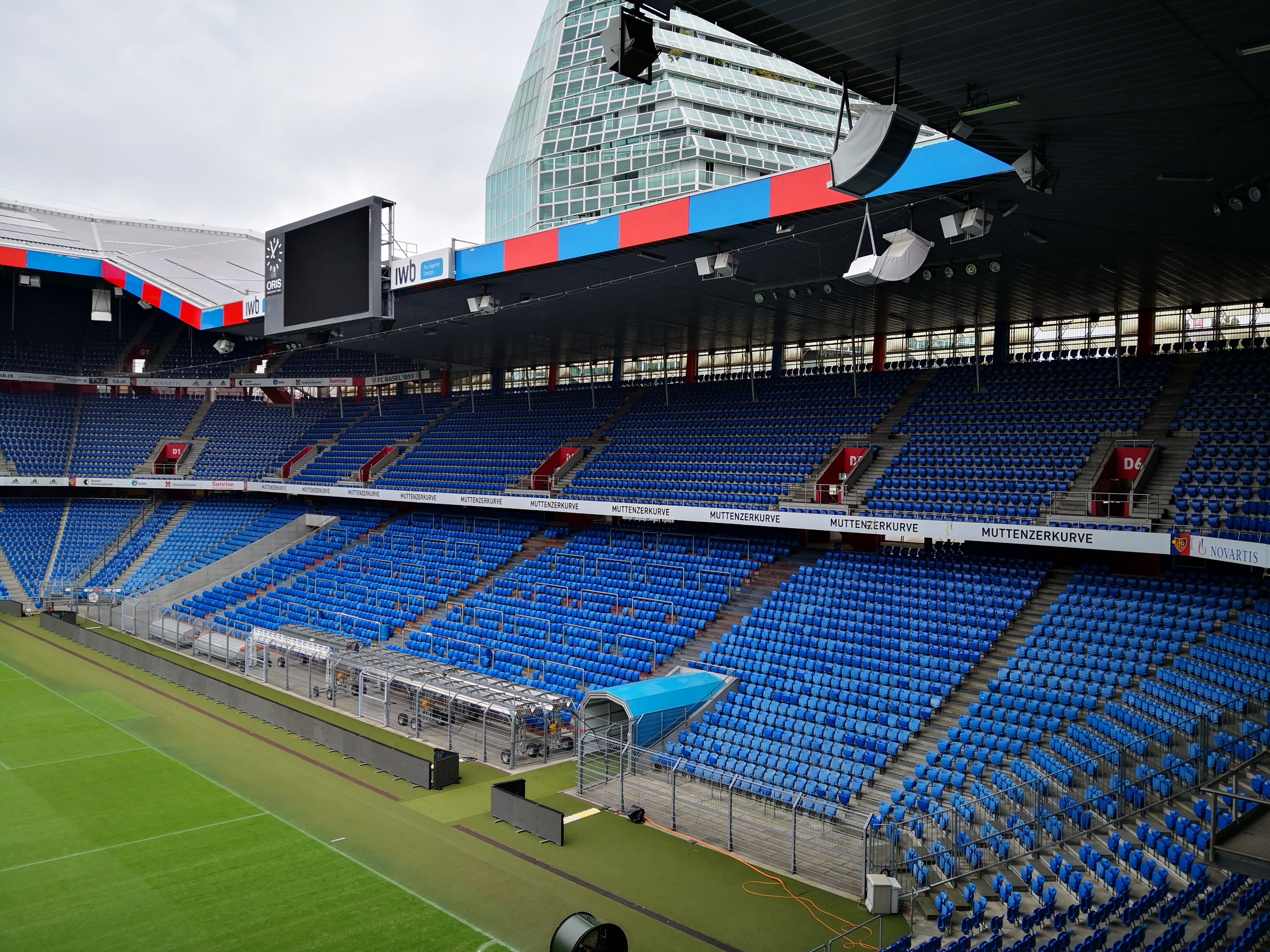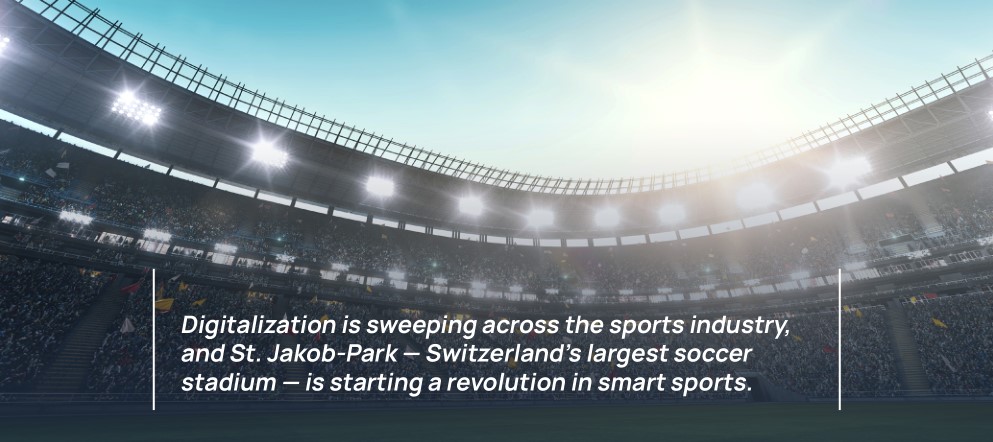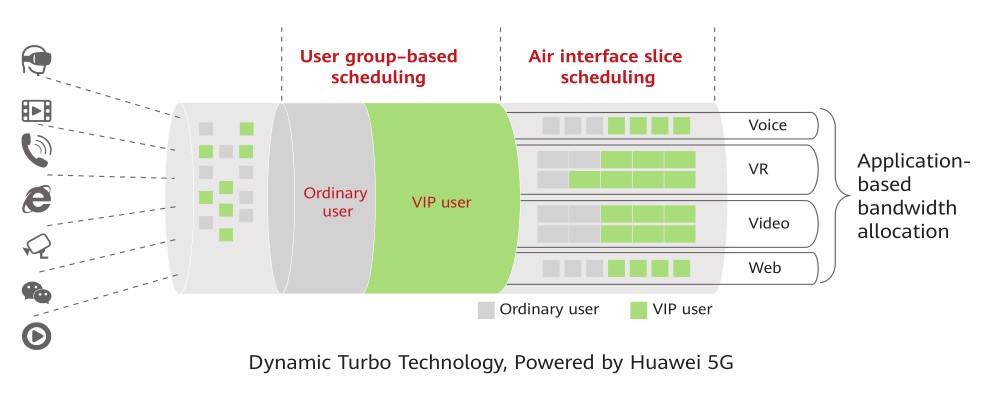St. Jakob-Park Stadium: Embracing the Smart Era with Wi-Fi 6
Enterprise products, solutions & services

Digital transformation is sweeping across nearly all industries and changing the way we live. In particular, digital transformation is innovating the sport industry. Riding the wave of digital transformation, the sport pioneer St. Jacobs Park is embracing a revolution of smart sports.
The St. Jakob-Park — located in Basel, along the Rhine River — is the largest soccer venue in Switzerland. With excellent infrastructure, it has been awarded four stars by the Union of European Football Associations (UEFA), and has hosted international soccer events such as European Cup Winners’ Cup finals, Europa League games, and European Football Championship games, gaining a good reputation in the soccer industry.
With over 40,000 seats and numerous stores, this stadium is at the forefront of digital transformation, and its network supports access of a maximum of 60,000 terminals.
The Wi-Fi network in the St. Jakob-Park brings many benefits, including the following:
Ubiquitous Wi-Fi connects the stadium and spectators. Before a match begins, spectators can easily view match information through the Wi-Fi network. In the stadium, Wi-Fi-based indoor navigation helps spectators to easily find parking spaces and their seats. During the halftime break, they can buy food and drinks from their seat using mobile apps.
The mobile Wi-Fi network connects spectators inside and outside the stadium. During the match, spectators can replay highlights of the match at any time and share their favorite moments with friends on social media. They can also view real-time information and match statistics as well as share their views through posting comments on mobile apps.
Soccer clubs can innovate the business model with Wi-Fi. The Wi-Fi network provides more Value-Added Services (VASs) for the stadium. Football clubs can push value-added information, such as sports events and advertisements, on the Portal page of the stadium network and apps, to create more revenue.
Wi-Fi improves the efficiency of the stadium’s office services. Stadium staff benefit from mobile offices through Wi-Fi, security staff use Wi-Fi for voice communication, and sports organization staff coordinate through Wi-Fi.
High-speed mobile Wi-Fi is the key to digital transformation of the stadium. In such high-density scenarios, ensuring a high-quality Internet access experience of tens of thousands of terminals also brings unprecedented challenges to Wi-Fi.
Wi-Fi deployment in stadiums is different from that in offices in that it requires high density, large capacity, and serviceability, and poses many challenges. The first challenge comes to the high user density. The St. Jakob-Park accommodates over 40,000 spectators and more than 60,000 access terminals. The user density is far higher than that in common offices. Second, the bandwidth requirement increases by tens of times to meet the demands for web browsing, instant messaging, High Definition (HD) video calls, and blu-ray video playback. Third, the user and service types vary greatly. It is critical to effectively identify users and services, implement differentiated control, and ensure the experience of key services and VIP users.
Based on the characteristics of St. Jakob-Park, Huawei provides a high-density Wi-Fi 6 solution that meets the stadium’s requirements, offering full coverage, high-density multi-user access, high bandwidth, and simplified O&M, to improve Wi-Fi coverage in the stadium. Considering the Wi-Fi characteristics and difficulties of deployment in the stadium, Huawei designed the Wi-Fi network to provide high-density access, ensure key service experience of VIP users by using differentiated policies, and simplify network management and O&M.
To support high-density access, the Wi-Fi network is designed in an end-to-end manner, ranging from product capability, network planning, and deployment to configuration optimization. Key requirements for the network design are that the products must support high-density access and large bandwidth, and the high-density wireless network must be planned based on the stadium’s structure and access scenarios.
In high-density scenarios, such as stadiums, signal coverage issues become a thing of the past. The key to Wi-Fi deployment is to minimize interference while maximizing network capacity through proper network planning. Because St. Jakob-Park has a complex structure, AP deployment and interference reduction are difficult. Huawei’s unique 3D network planning tool quickly provides a network planning scheme based on the stadium’s structure, and performs 3D coverage simulation and interference rendering to offer an optimal Wi-Fi deployment scheme.
Huawei AP706DN, the industry’s first Wi-Fi 6 AP, provides high-density coverage for the stadium. Huawei’s leading Wi-Fi technologies not only ensure high-quality access in terms of signal coverage, access density, and stability, but also meets the quality requirements of bandwidth-hungry services such as HD videos, offering an excellent wireless experience for users.
St. Jakob-Park has both common stands and VIP rooms. The Wi-Fi users include ordinary spectators, VIP users, and staff, so the network needs to provide high-performing Internet access for spectators as well as key services such as match coordination and live streaming. When network congestion occurs, key services of VIP users must be ensured. Huawei’s exclusive VIP air interface assurance technology reserves some dedicated spectrum resources for VIP users, ensuring that VIP users can obtain desired spectrum resources as needed and enjoy the VIP user experience. In addition, this technology is associated with Huawei’s exclusive 5G-powered Dynamic Turbo technology (air interface slicing technology) to determine the spectrum allocation preference and quantity for different users based on service priorities. This ensures the experience of VIP users and key services, such as sports event coordination and live streaming.
As an increasing number of terminals access the network and service scenarios become increasingly complex, low network deployment and O&M efficiency become challenges for high-density stadium networks. Simplified network deployment and management, network autonomy and self-healing, improved user experience are also the requirements raised by St. Jakob-Park for Huawei.
Huawei CloudCampus solution redefines network management and O&M in stadiums. This feature-rich solution provides end-to-end cloud management services throughout the entire network life cycle, including cloud-based network planning, deployment, O&M, and optimization, to deliver automated, self-service, and simplified network management, greatly reducing network O&M costs.
With exclusive Wi-Fi 6 technologies, Huawei builds a fast, stable, and efficient wireless network for St. Jakob-Park. This wireless network brings benefits to the stadium, spectators, and football clubs. Spectators can enjoy more convenient services and a more exciting experience during the match. Football clubs can use the Wi-Fi network in branding and precision marketing. The stadium not only improves the management and operational efficiency, but also makes football fans want to return for the exciting experience.
This is just the beginning of the smart stadium era.
With the continuous development of 5G, Wi-Fi 6, and AI technologies, science and technology will bring the next level of intelligence into the sport industry.

